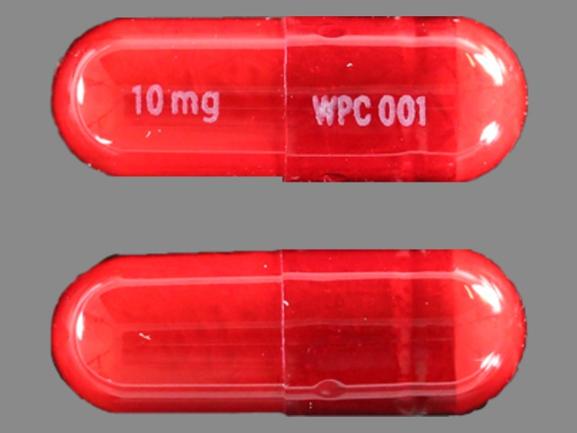Dibenzyline Disease Interactions
There are 3 disease interactions with Dibenzyline (phenoxybenzamine).
Phenoxybenzamine (applies to Dibenzyline) cardiovascular dysfunction
Major Potential Hazard, High plausibility. Applicable conditions: Cerebral Vascular Disorder, Ischemic Heart Disease, Congestive Heart Failure
The use of phenoxybenzamine is contraindicated when a decrease in blood pressure may be undesirable, such as in patients with marked cerebrovascular or coronary insufficiency in whom ischemia may be aggravated. Also, phenoxybenzamine- induced reflex tachycardia can precipitate frank congestive heart failure (CHF) and angina in patients with compensated CHF or coronary artery disease. Phenoxybenzamine should be used with caution under such circumstances.
References
- "Product Information. Dibenzyline (phenoxybenzamine)." SmithKline Beecham
Phenoxybenzamine (applies to Dibenzyline) renal damage
Moderate Potential Hazard, Moderate plausibility. Applicable conditions: Renal Dysfunction
Phenoxybenzamine should be administered with caution in patients with marked renal damage.
References
- "Product Information. Dibenzyline (phenoxybenzamine)." SmithKline Beecham
Phenoxybenzamine (applies to Dibenzyline) respiratory infections
Moderate Potential Hazard, Moderate plausibility. Applicable conditions: Pleuropulmonary Infection
The adrenergic blocking effect of phenoxybenzamine may aggravate the symptoms of respiratory infections. Caution is recommended when treating patients with respiratory infections.
References
- "Product Information. Dibenzyline (phenoxybenzamine)." SmithKline Beecham
Dibenzyline drug interactions
There are 196 drug interactions with Dibenzyline (phenoxybenzamine).
Dibenzyline alcohol/food interactions
There is 1 alcohol/food interaction with Dibenzyline (phenoxybenzamine).
More about Dibenzyline (phenoxybenzamine)
- Dibenzyline consumer information
- Check interactions
- Compare alternatives
- Pricing & coupons
- Drug images
- Side effects
- Dosage information
- During pregnancy
- Generic availability
- Drug class: miscellaneous cardiovascular agents
- En español
Related treatment guides
Drug Interaction Classification
| Highly clinically significant. Avoid combinations; the risk of the interaction outweighs the benefit. | |
| Moderately clinically significant. Usually avoid combinations; use it only under special circumstances. | |
| Minimally clinically significant. Minimize risk; assess risk and consider an alternative drug, take steps to circumvent the interaction risk and/or institute a monitoring plan. | |
| No interaction information available. |
Further information
Always consult your healthcare provider to ensure the information displayed on this page applies to your personal circumstances.


